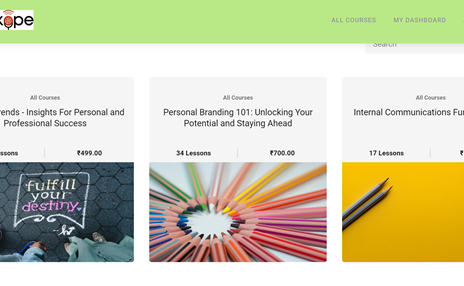We are taught this wrongly – compete and win. Unfortunately, it comes at a cost. You lose sleep, you lose relationships and probably your self-esteem. When you see your workplace as an ‘us’ vs ‘them’ game, you end up creating more issues for yourself in the future. It is unfortunate that in some countries, this practice of competing ‘against’ is taught very early in life (at school) and reversing that can be difficult later when people join the workforce or start out as entrepreneurs.
1. Not collaborating: With limited jobs and resources at stake, often people feel they need to work hard to ‘beat’ the others to the tape. However, when you extend your hand to partner, it opens up a world of possibilities. You are viewed in a different light.
2. Not seeing others’ perspectives: You can only partner when you have listened to and considered other peoples’ views. This means – building a bridge begins with first thinking of the other. Seek inputs about what’s on their minds and appreciate how they have arrived at the position they are taking. Reflect on it before commenting or reacting. It isn’t easy, especially when there is a dearth of time and you have other stuff to get done.
3. Ignoring feedback that impacts communication: Listening and absorbing feedback are fundamental to engaging better with stakeholders. When stakeholders don’t see actions that indicate you have done something with the feedback given they lost trust. Make it a point to circle back when you have made progress on the feedback received.
4. Letting ego come in the way: No amount of engagement is enough when your mind is clouded by your own worldview. The top cause for workplace conflicts is warring egos. Ego clashes lead to toxicity which in turn breeds inappropriate behavior. In the process, everyone loses.Partnerships and collaboration can’t foster in an environment where people hold on to their egos.
5. Not communicating progress: While you don’t need to be boastful, it helps to inform colleagues or people you engage closely with, on the direction you are taking for initiatives. Step up to lead with communication. Help stakeholders see the big picture you are operating in.
If you found this article useful, do follow me on Linkedin and subscribe to my blog atwww.aniisu.com
Other posts in the ‘Credibility Degraders’ Series are on Linkedin:
· Don’t Ignore Credibility Degraders. You Cannot ‘Not’ Communicate
· Be Watchful Of Credibility ‘Degraders’. ‘Small’ Stuff Does Matter
· Disengage From Credibility Degraders. Flip Your Perspective
· Avoid Credibility Degraders. Own Your Development
· Shun Credibility Degraders. Protect The Culture
· Be Wary of Credibility Degraders. Avoid Mindless Interactions
· Be Aware of Credibility Degraders. Know what Good and Great Looks Like


